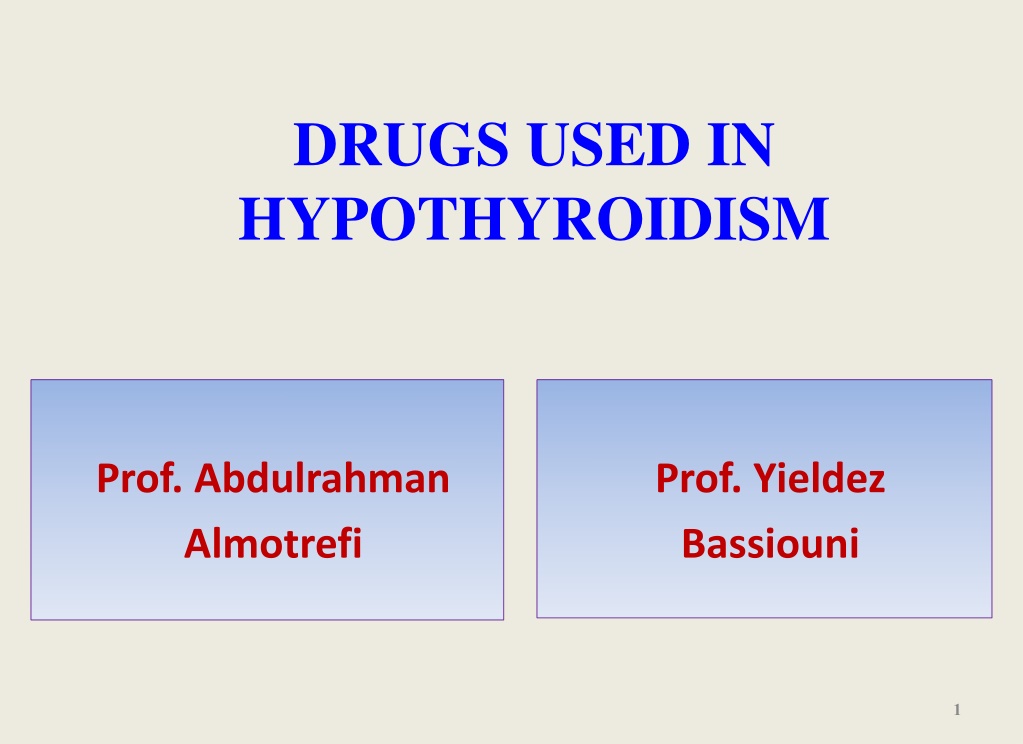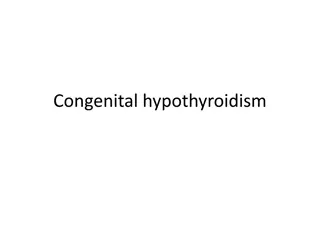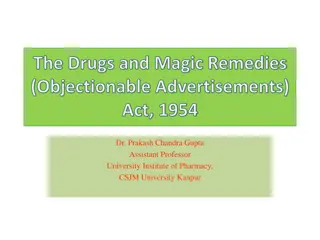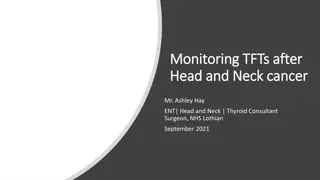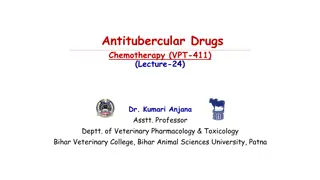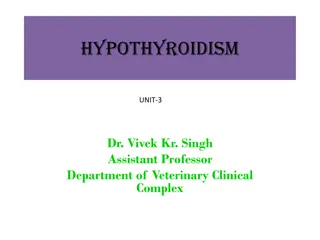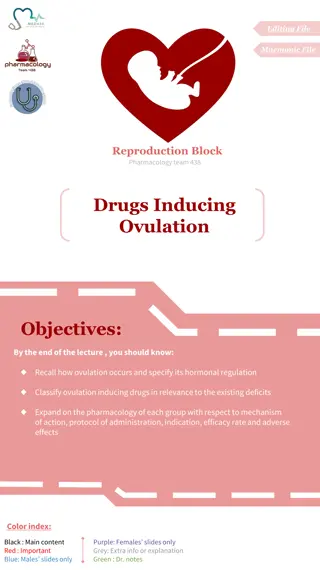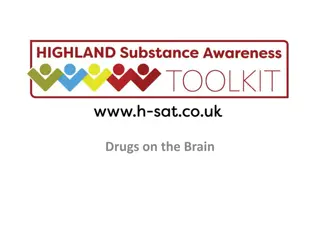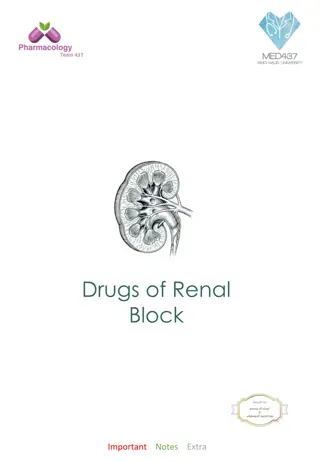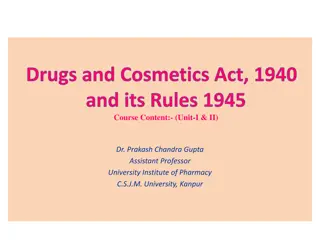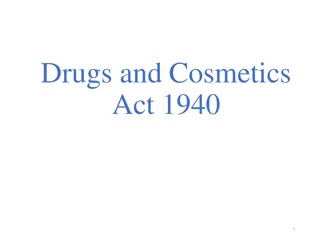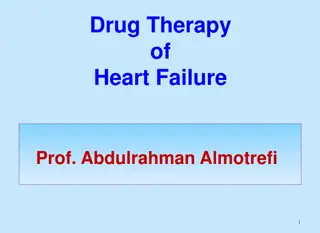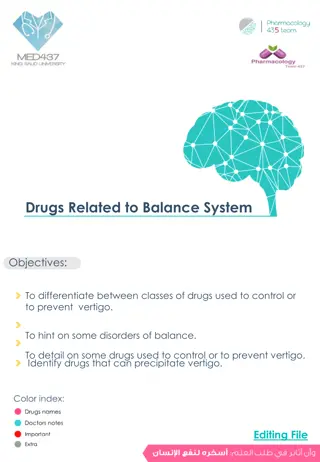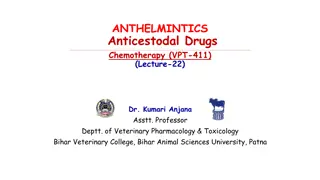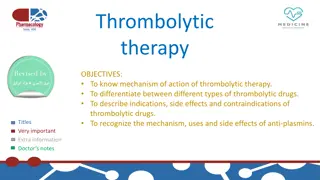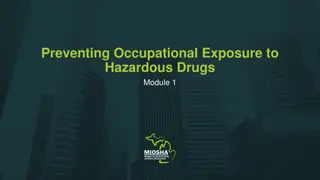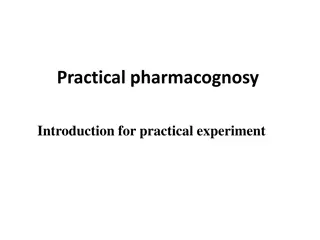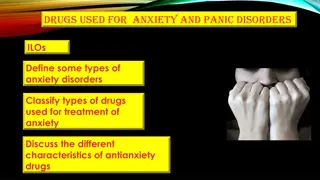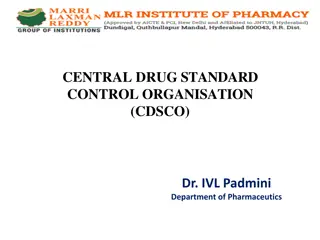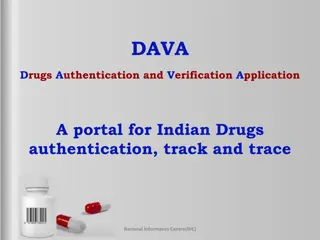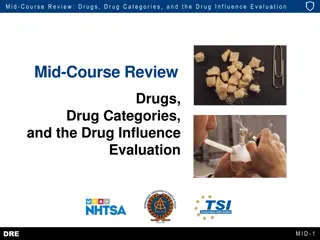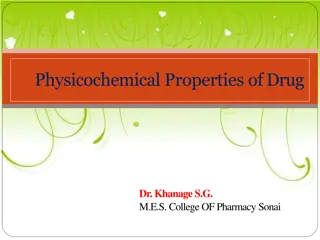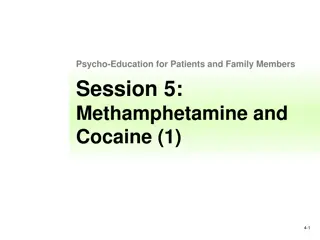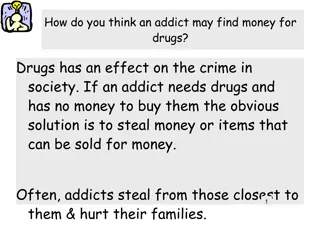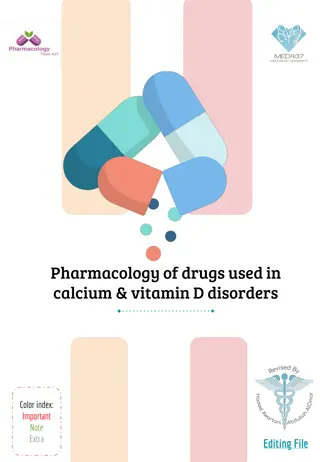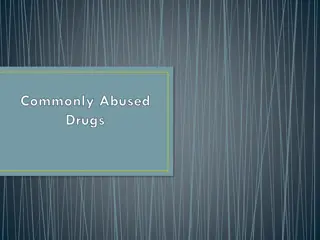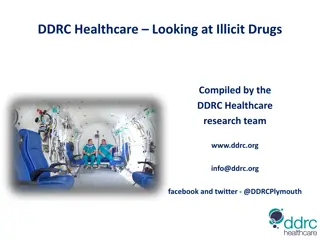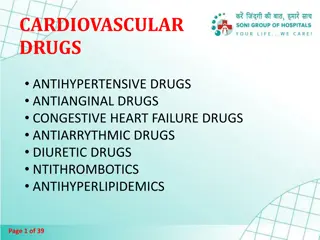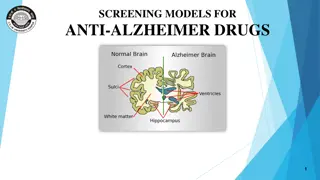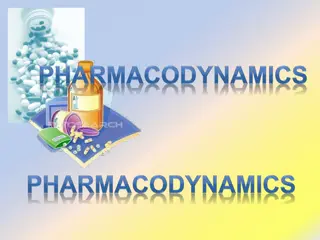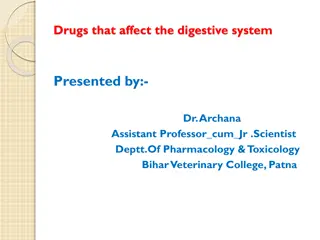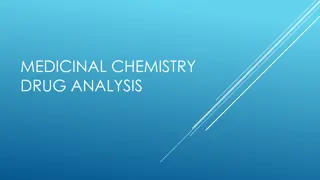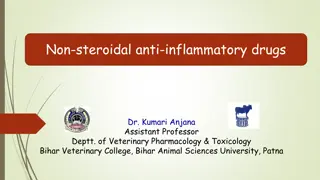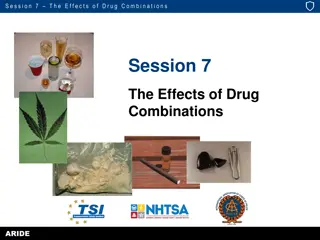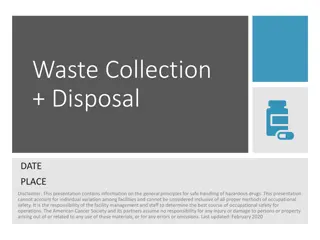Drugs Used in Hypothyroidism and Their Effects
Hypothyroidism is characterized by an underactive thyroid gland, leading to a variety of symptoms. This detailed presentation covers the causes, manifestations, and treatments of hypothyroidism, with a focus on the drugs used for treatment. Learn about different classes of medications, their mechanisms of action, clinical uses, and potential side effects, along with special cases like myxedema coma. Understand the importance of early and late manifestations in diagnosing and managing hypothyroidism effectively.
Download Presentation

Please find below an Image/Link to download the presentation.
The content on the website is provided AS IS for your information and personal use only. It may not be sold, licensed, or shared on other websites without obtaining consent from the author. Download presentation by click this link. If you encounter any issues during the download, it is possible that the publisher has removed the file from their server.
E N D
Presentation Transcript
DRUGS USED IN HYPOTHYROIDISM Prof. Abdulrahman Almotrefi Prof. Yieldez Bassiouni 1
Learning objectives By the end of this lecture, students should be able to: - Describe different classes of drugs used in hypothyroidism and their mechanism of action - Understand their pharmacological effects, clinical uses and adverse effects. - Recognize treatment of special cases of hypothyroidism such as myxedema coma
Hypothyroidism Thyroid gland does not produce enough hormones may be congenital, primary or secondary Congenital: in children, hypothyroidism leads to delay in growth (dwarfism),and intellectual development (cretinism) People who are most at risk include those over age 50 & mainly in females Prevalence is 14/1000 females and 1/1000 males Diagnosed by low plasma levels of T3 & T4 and TSH 3
Primary hypothyroidism Inadequate function of the gland itself - causes Iodine deficiency is the most common cause of primary hypothyroidism and endemic goiter worldwide Autoimmune; Hashimoto s thyroiditis Radioactive iodine treatment of hyperthyroidism Post thyroidectomy Anti-thyroid drugs (CMZ , PTU) Other drugs (lithium, amioderone) Sub-acute thyroiditis 4 Thyroid carcinoma
Secondary hypothyroidism-causes - Hypothalamic disease - Pituitary disease 5
Early Manifestations of Hypothyroidism Fatigue and lack of energy Cold intolerance Constipation Weakness Muscle or joint pain Paleness Thin, brittle hair and fingernails 6
Late Manifestations of Hypothyroidism Decreased sense of taste and smell Dry flaky skin Hoarseness Menstrual disorders Puffy face, hands, and feet Thinning of eyebrows 7
Treatment of Hypothyroidism Replacement therapy with synthetic thyroid hormone preparations 12
Thyroid preparations LEVOTHYROXINE: (T4) A synthetic form of the thyroxine (T4) , is the drug of choice for replacement therapy Stable and has a long half life ( 7 days) Administered once daily. Restore normal thyroid levels within 2-3 weeks Absorption is increased when hormone is given on empty stomach 13
Thyroid preparations LEVOTHYROXINE: (T4) Oral preparations available from 0.025 to 0.3 mg tablets Parenteral preparation 200-500 g In old patients and in patients with cardiac problems, treatment is started with reduced dosage. Levothyroxine is given in a dose of 12.5 25 g/day for two weeks and then increased every two weeks. 14
Clinical uses Hypothyroidism, regardless of etiology including : Congenital Hashimoto thyroiditis Pregnancy 15
ADVERSE EFFECTS OF OVER DOSE CHILDREN : - restlessness , insomnia - accelerated bone maturation ADULTS : - cardiac arrhythmias (Tachycardia, atrial fib.) - tremor , restlessness ,headache - heat intolerance - muscle pain - change in appetite, weight loss 16
Thyroid preparations Liothyronine (T3) : - More potent (3-4 times) and rapid action than levothyroxine - has a short half life - not recommended for routine replacement therapy ( requires multiple daily doses) - should be avoided in cardiac patients - oral preparation available are 5-50 g tablets - parenteral use 10 g/ml 17
Thyroid preparations LIOTRIX : Combination of synthetic T4 & T3 in a ratio 4:1 that attempt to mimic the natural hormonal secretion The major limitations to this product are high cost and lack of therapeutic rationale because 35% of T4 is peripherally converted to T3 18
MYXEDEMA COMA Life threatening hypothyroidism The treatment of choice is loading dose of levothyroxine intravenously 300-400 g initially followed by 50 g daily. I.V. liothyronine for rapid response but it may provoke cardiotoxicity I.V. hydrocortisone may be used in case of adrenal and pituitary insufficiency. 19
HYPOTHROIDSM AND PREGNANCY In pregnant hypothyroid patient 20-30 % increase in thyroxine is required because of : - elevated maternal thyroxine binding globulin (TBG) induced by estrogen - early development of fetal brain which depends on maternal thyroxine 20
